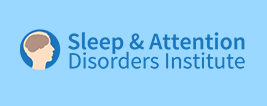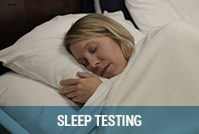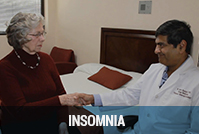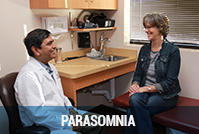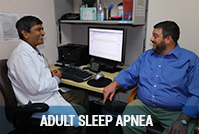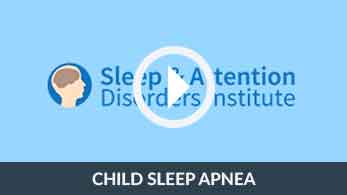If Your Child is Suffering from a Sleep Disorder, Rely on Michigan Sleep Medicine Expert Dr. R Bart Sangal to Diagnose and Treat It Today
Sleep disorders in children are common. However, many children are not properly diagnosed. This is because parents often do not recognize sleep problems as treatable disorders. Even doctors may not think of sleep disorders in children. Unfortunately, sleep disorders can have an adverse effect on children. Home life suffers. School work suffers. Relationships suffer.
Children suffering from sleep disorders may have night terrors or may sleep walk. They may sleep poorly. They may be sleepy during the day. Even worse, if your child snores, it may be a sign of dangerous sleep apnea. It can wreak havoc on your child’s health, attention span and mood.
If your child is having trouble with sleep or sleepiness, Dr. R Bart Sangal can help. He is a Sleep Medicine doctor who specializes in diagnosing and treating child sleep and attention disorders.
Dr. Sangal trained at Baltimore’s famous Johns Hopkins University. He is board certified in Sleep Medicine and in Clinical Neurophysiology. For over 30 years, patients have been coming to Dr. Sangal when other doctors have been unable to diagnose a sleep problem. He will find out what’s keeping your child up at night.
If your child is suffering from any of the following sleep disorders, you can count on Dr. Sangal to diagnose it and treat it:
- Sleep Apnea
- Sleep Walking/Parasomnia
- Insomnia
- Hypersomnia/Narcolepsy
- Circadian Rhythm Sleep Disorder
- Sleep Related Movement Disorder
The Sleep & Attention Disorders Institute is located in the Greater Detroit area, where Sterling Heights, Rochester Hills, Shelby Township and Troy, Michigan come together. Contact us at 586-254-0707 to make an appointment with Dr. Sangal. He treat children ages one and up.
Sleep Apnea in Children
Does your child snore? Snoring may be a sign of dangerous sleep apnea. If your child has sleep apnea, this means they are stopping breathing while sleeping. Don’t panic! Sleep apnea is common in children and it can be successfully treated. The problem is that parents often ignore their children’s snoring. And when they don’t ignore the snoring, many parents, and even pediatricians, are often not familiar with sleep apnea in children. Or they get the tonsils removed without testing for sleep apnea. This may help snoring but may not help sleep apnea. In the absence of sleep apnea, removing the tonsils may not even be necessary.
Young children with large tonsils, a small jaw or other facial deformities may suffer from sleep apnea. As a child ages, tonsils become smaller and sleep apnea may disappear. In teen years, sleep apnea may appear with weight gain or if they have small jaws.
Sleep apnea in children can cause or worsen daytime fatigue or sleepiness, hyperactivity or attention deficit, learning problems and bedwetting. In older children, it can also cause high blood pressure. Severe sleep apnea may cause heart or lung problems in children.
If your child snores, make an appointment today with Dr. R Bart Sangal at the Sleep & Attention Disorders Institute in Sterling Heights, Mich. It is located near Macomb Township, Clinton Township and Pontiac. Find out how to stop snoring. Have your child’s sleep apnea diagnosed and treated properly. Your child will feel better and do better in school. Call us now at 586-254-0707 to make an appointment with Michigan’s best sleep doctor.
For more information, click here.
Sleep Walking and Parasomnia in Children
Non-Rapid Eye Movement Sleep Parasomnias are common in children. They occur when a child is in deep sleep. If you attempt to wake a child suffering from any these conditions, the child is disoriented and confused. NREM Sleep Parasomnias include:
Sleep Walking: children arouse from deep sleep and walk. If awakened, they are confused.
Night Terrors: children arouse from deep sleep and scream. They look frightened. If awakened, they are confused.
Confusional Arousals: children wake up from sleep and are confused.
Children usually grow out of sleep walking and night terrors. However, while children are experiencing these conditions, it can be very frightening. If it is disturbing to the family or there is risk of injuries, see Dr. Sangal. At the Sleep & Attention Disorders Institute in Sterling Heights, Mich., Dr. Sangal will find out what is going on with your child. He will check for seizures and any other underlying cause of the sleep disorder. He will diagnose NREM sleep parasomnias and treat them if needed.
If your child is sleep walking or has night terrors, make an appointment with the most experienced sleep doctor at the oldest accredited sleep center in Macomb and Oakland counties of Michigan. It is located near Royal Oak, Warren and Bloomfield Township. Dr. R Bart Sangal will find out what’s going on and won’t stop until your child is sleeping better. Call us now at 586-254-0707 or fill out our convenient online contact form so we can call you.
Daytime Sleepiness (Hypersomnia) and Narcolepsy in Children
Hypersomnia or daytime sleepiness is common in children who are not getting enough restful sleep at night. Children with hypersomnia often doze off in school. They find it difficult to stay awake. This affects work and school performance. It can cause mood disorders. In teens that drive, this can cause car accidents.
Causes of Hypersomnia (daytime sleepiness) include:
- Children suffering from Sleep Apnea snore and stop breathing in sleep.
- Sleep deprivation causes daytime sleepiness. Teenagers need eight to ten hours in bed. Younger children need even more. Getting less than that makes them sleepy. Sleep deprivation symptoms are sleepiness and attention deficit.
- Narcolepsy is daytime sleepiness with a tendency to go into REM sleep. Patients fall asleep too easily. They go into REM or dream sleep too quickly. A brain chemical (orexin) may be low. Narcolepsy often begins in childhood or teenage years. These patients may also have sleep paralysis, hypnagogic hallucinations, or cataplexy. Sleep paralysis is waking up from sleep unable to move. Hypnagogic hallucinations are dreams while falling asleep or waking up. Cataplexy is losing muscle strength when emotional.
- Idiopathic hypersomnia is daytime sleepiness without the tendency to go into REM sleep. Patients fall asleep too easily. This often begins in teenage years.
- Depression can cause sleepiness.
- Many psychiatric medicines can make you sleepy.
- Some drugs and alcohol can make you sleepy.
- Treatment of Hypersomnia (Daytime Sleepiness):
- Tonsillectomy or CPAP for Sleep Apnea
- Increased time in bed for sleep deprivation
- Stimulant medicines for narcolepsy. Medicines that suppress REM sleep stop sleep paralysis and cataplexy
- Stimulant medicines for Idiopathic Hypersomnia
If your child has daytime sleepiness, come to us. Find out how to control sleepiness. Come to the most experienced sleep doctor and sleep center in Michigan. Your child will feel better and will do better in school. Your child will also be happier and healthier. Call us now at 586-254-0707 or fill out our online contact us so we can call you.
Insomnia in Children
Just like adult insomnia, children with insomnia (trouble sleeping) are sleepy all day long. Insomnia affects performance in school and activities. Lack of restful sleep causes moodiness and irritability. It affects relationships.
Symptoms of childhood insomnia include difficulty falling asleep, difficulty staying asleep and sleep that is not refreshing. Symptoms occur even though the child gets enough time in bed.
If your child’s sleeping problem lasts more than a month, make an appointment with sleep medicine expert Dr. R Bart Sangal. At the Sleep & Attention Disorders Institute in Sterling Heights, Dr. Sangal treats children ages one and up His sleep center is the oldest accredited sleep center in Macomb and Oakland counties.
Causes of Insomnia in Children Include:
- Sleep apnea can cause your child to wake up choking. Sleep is not refreshing.
- Chemical imbalances in the brain can affect your child’s sleep. These can involve many chemicals. Serotonin, norepinephrine, histamine, dopamine and orexin keep you awake.
- Inadequate sleep habits can cause poor sleep. They include spending too much time in bed, irregular bedtimes, trying to sleep in a bedroom that is too noisy or has too much light, reading, using the computer, watching TV in bed, daytime napping.
- Childhood depression and anxiety can cause insomnia. Many medicines can cause insomnia. Sleeping pills can make insomnia worse. Drugs and alcohol can worsen sleep.
Effectives Cures for Insomnia Include:
Tonsillectomy or CPAP for sleep apnea
Medicines to decrease chemicals that keep the child awake for chemical imbalances in the brain. These are not addicting medicines. They are not sleeping pills.
Cognitive behavior therapy to change inadequate sleep habits
- Decrease time in bed; no naps
- Do not stay in bed if lying awake
- No TV, reading, phone or computer time in bedroom
- Regular sleep schedule
- Relax before sleep
- Make bedroom quiet and dark
Sleeping pills do not work well in children. They are addicting. They should not be prescribed for kids. Dr. Sangal will find the best treatment for your child’s insomnia or other sleep disorder. He is the most experienced sleep doctor in Michigan. Trust Dr. Sangal to find out what’s keeping your child from getting a good night’s sleep. Make an appointment now. Call 586-254-0707 or fill out our contact form and we will contact you.
Circadian Rhythm Sleep Disorders (CRSD) in Children:
Circadian rhythm sleep disorder is a disorder of the 24-hour cycle. Human bodies adjust to the sun’s cycle (circadian rhythm) daily. If the body is not adjusted to the sun properly, a child will have a CRSD. The most common CRSD in children, especially in teenagers, is Delayed Sleep Phase Disorder.
When children fall asleep too late and wake up too late in the morning, they suffer from delayed sleep phase disorder. They often complain of insomnia. They have daytime sleepiness. Delayed sleep phase disorder is a treatable condition.
If your child is having difficulty falling asleep and waking up when desired, come to us. We can look for causes. We can treat it. You will sleep better and feel better. Call us at 586-254-0707 or fill out our convenient online contact form. We will contact you.
Sleep-Related Movement Disorders in Children:
Sleep related movement disorder is abnormal or unusual movement while resting or falling asleep, or during sleep. Restless Legs Syndrome can occur in children, and is sometimes mistakenly called “growing pains”. The legs feel uncomfortable when resting or close to bedtime, with an urge to move them that cannot be resisted. Moving the legs helps for a short time. Sleep testing is not necessary as it cannot be diagnosed by sleep testing. Periodic limb movement disorder is repeated leg jerks during sleep. It is noticed during sleep testing. Sleep related leg cramps are not common in children. Sleep related bruxism is grinding of the teeth during sleep, and a dentist can make a device to keep the upper and lower teeth separated.
Sleep related rhythmic movement disorder is more common in children and gets better with age. Children may rock, or bang their heads against the headboard or the wall, while falling asleep or during arousals from sleep. It can be disturbing and even frightening for the parents. Seizures can present with similar symptoms. If mild, treatment is not necessary as it will usually get better with age. There are medicines that can be used, though they do not work reliably.
Sleep Medicine Expert Dr. R Bart Sangal Diagnoses and Treats Children’s Sleep Disorders
For more than 30 years, sleep medicine expert Dr. R Bart Sangal has been treating patients from all over the Greater Detroit Metro area. He is the founder of the Sleep & Attention Disorders Institute in Sterling Heights, Mich. which is conveniently located near Clinton, Warren, Royal Oaks, and Bloomfield.
Not all sleep doctors diagnose and treat sleep disorders in children. Dr. Sangal has the experience and training to help your child. In fact, when families are unable to get help elsewhere, they come to Dr. Sangal to diagnose and effectively treat their child’s sleep or attention disorders.
Bring your child to see Dr. R Bart Sangal at the Sleep & Attention Disorders Institute in Sterling Heights, Mich. He is a sleep medicine expert. If there is a cause for your children’s sleeping problem Dr. Sangal will diagnose it. He will find the best treatment for your child. Your child will sleep and feel better. Your child will do better in school.
Make an appointment to see Michigan’s best Sleep Medicine physician. Call Dr. Sangal now at 586-254-0707 or fill out our contact form so we can call you.
